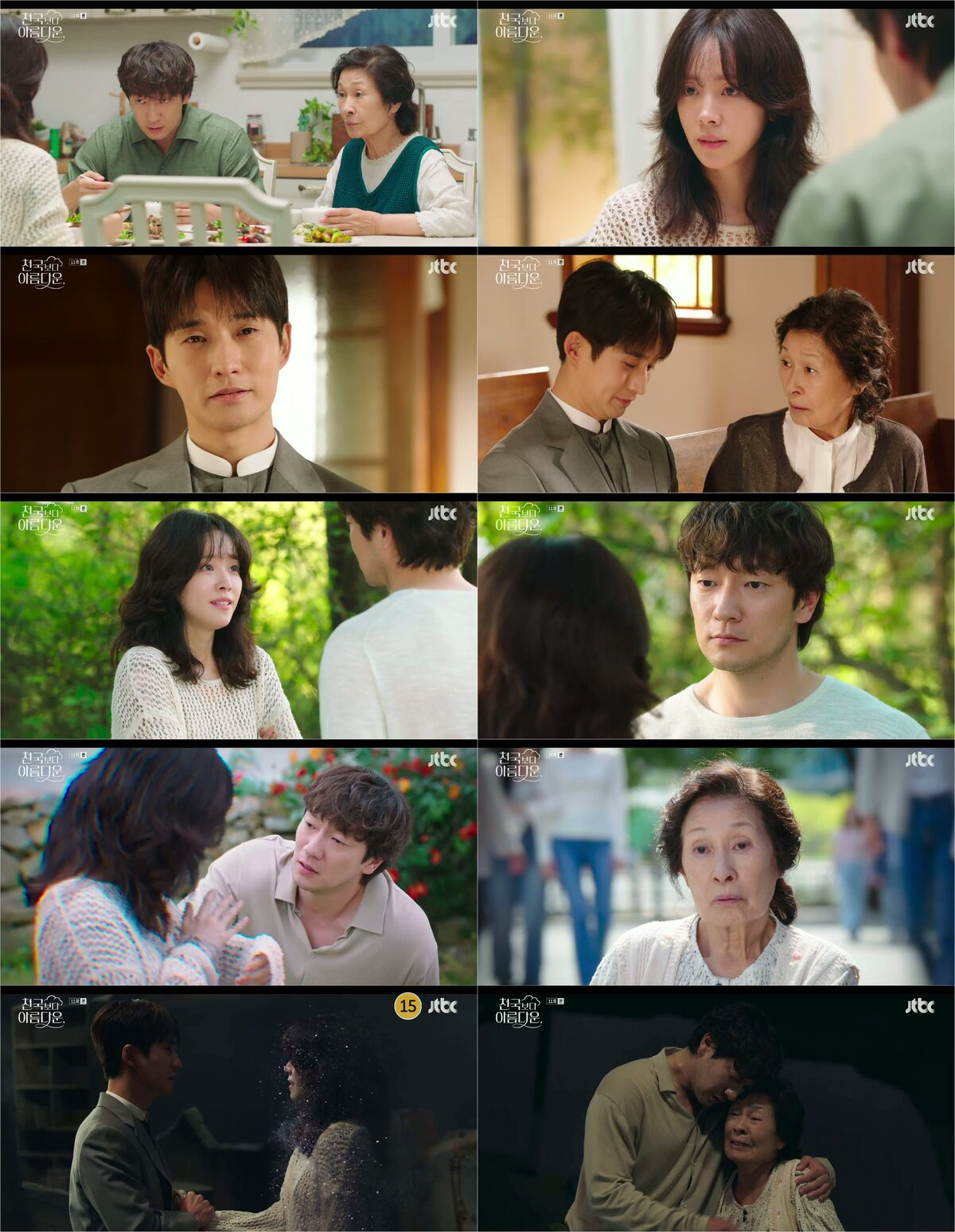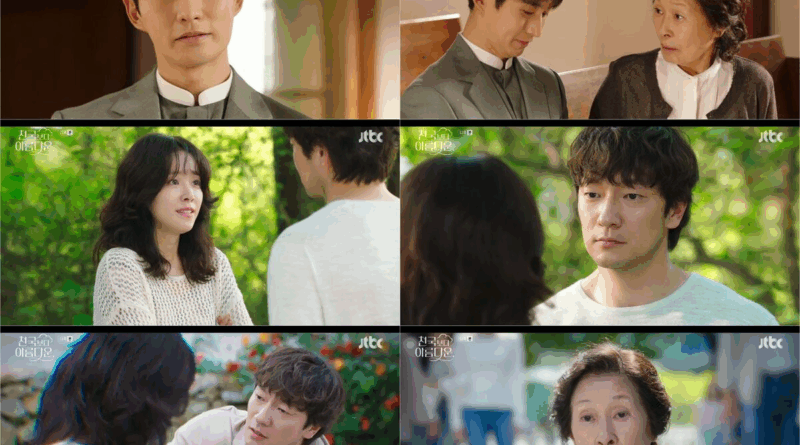JTBC’s ‘Heavenly Light’: A Heart-Rending Revelation Behind Somi’s Disappearance

Episode 11 of the JTBC weekend drama ‘Heavenly Light’ (Korean title: ‘천국보다 아름다운’) captivated audiences with a deeply emotional story arc that revealed long-buried secrets surrounding Somi (played by Han Ji-min) and Haesook (played by Kim Hye-ja). As the episode unfolded, viewers discovered that Somi, once thought to be just a character within the ‘Heaven House,’ was actually a manifestation of Haesook’s repressed grief and traumatic memory—a shadow of her lost son, Euno.
The drama, directed by Kim Seok-yoon and written by Lee Nam-kyu and Kim Soo-jin, with production from Studio Phoenix and SLL, recorded its highest viewership yet, reaching 7.0% nationwide and 7.1% in metropolitan areas according to Nielsen Korea.
The storyline exposed how Haesook had mentally erased her painful past after losing her five-year-old son, Euno, in a bustling market. This trauma led to the creation of Somi, a sentient embodiment of grief and sorrow. Meanwhile, Goh Nak-joon (played by Son Seok-gu), upon learning the truth through the Center Manager (played by Chun Ho-jin), realized he was the reason these lingering feelings had not faded.
Feeling conflicted, Nak-joon tells Somi, “I can’t hate you,” and pledges to accompany her even to ‘hell’ if that’s what it takes to save Haesook. At the same time, Haesook is thrust into a ‘gray hell’—a desolate metaphysical space symbolizing her tragic condition.
Adding to the turmoil, the mysterious Sonya (Choi Hee-jin) appears before Somi, offering cryptic insight and declaring, “You think you’ve lost your memories. But they’re not even yours.” As Somi’s confusion deepens, the Center Manager confirms that Somi is an emotional byproduct of Haesook—highlighting the need for release through forgiveness and love.
The climax occurs when an adult Euno—reborn as the pastor (played by Ryu Deok-hwan)—appears and consoles both Somi and Haesook. Asking his mother to let him go so he might find peace, his forgiveness helps Somi dissolve, bringing emotional resolution.
This episode spotlighted themes of motherly guilt, emotional repression, and self-forgiveness, embodied hauntingly through the representation of the ‘gray hell’—a place where only those who forgive themselves can be freed. With the show’s final act approaching, viewers await the conclusion of Haesook and Nak-joon’s profound journey through loss and redemption.




